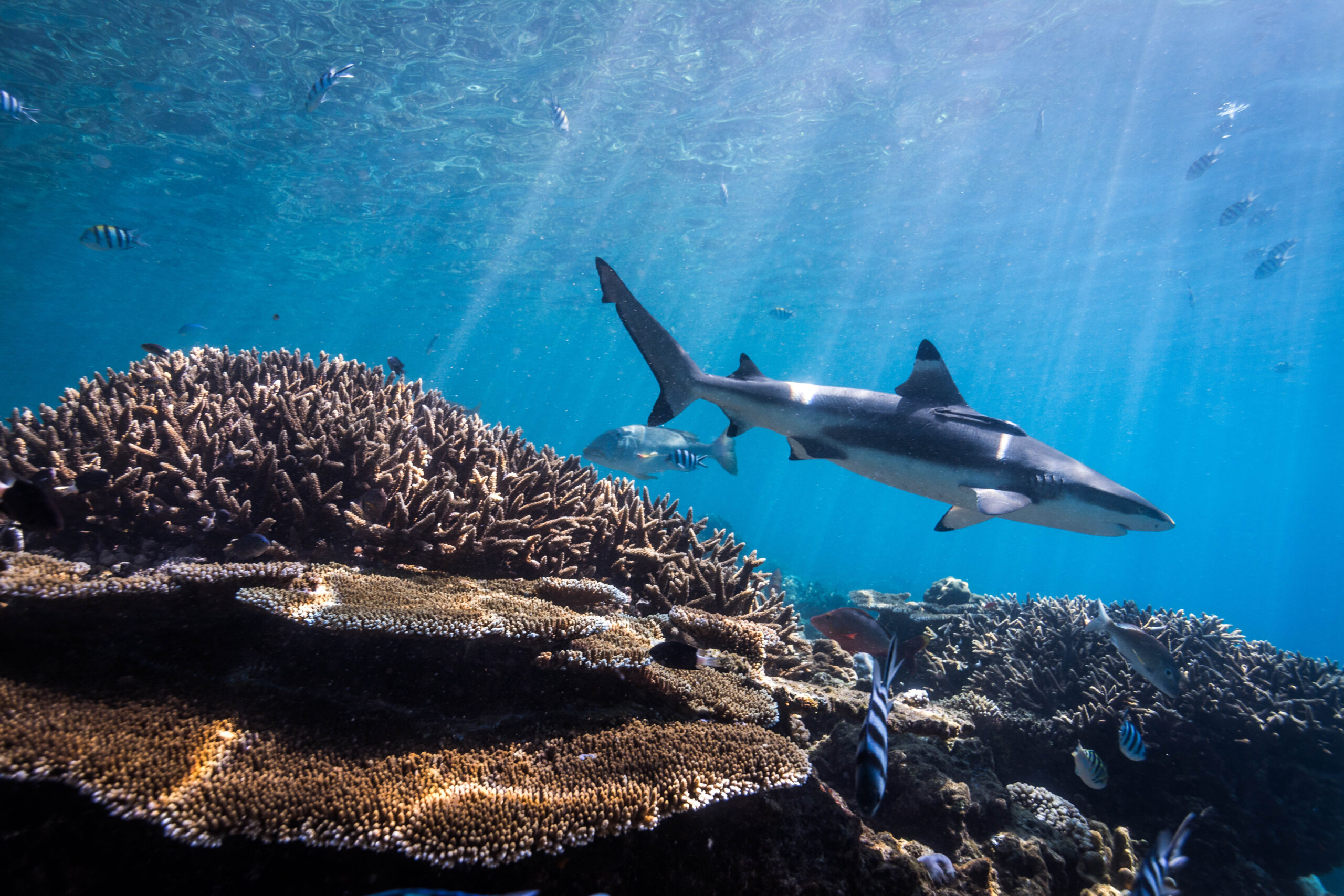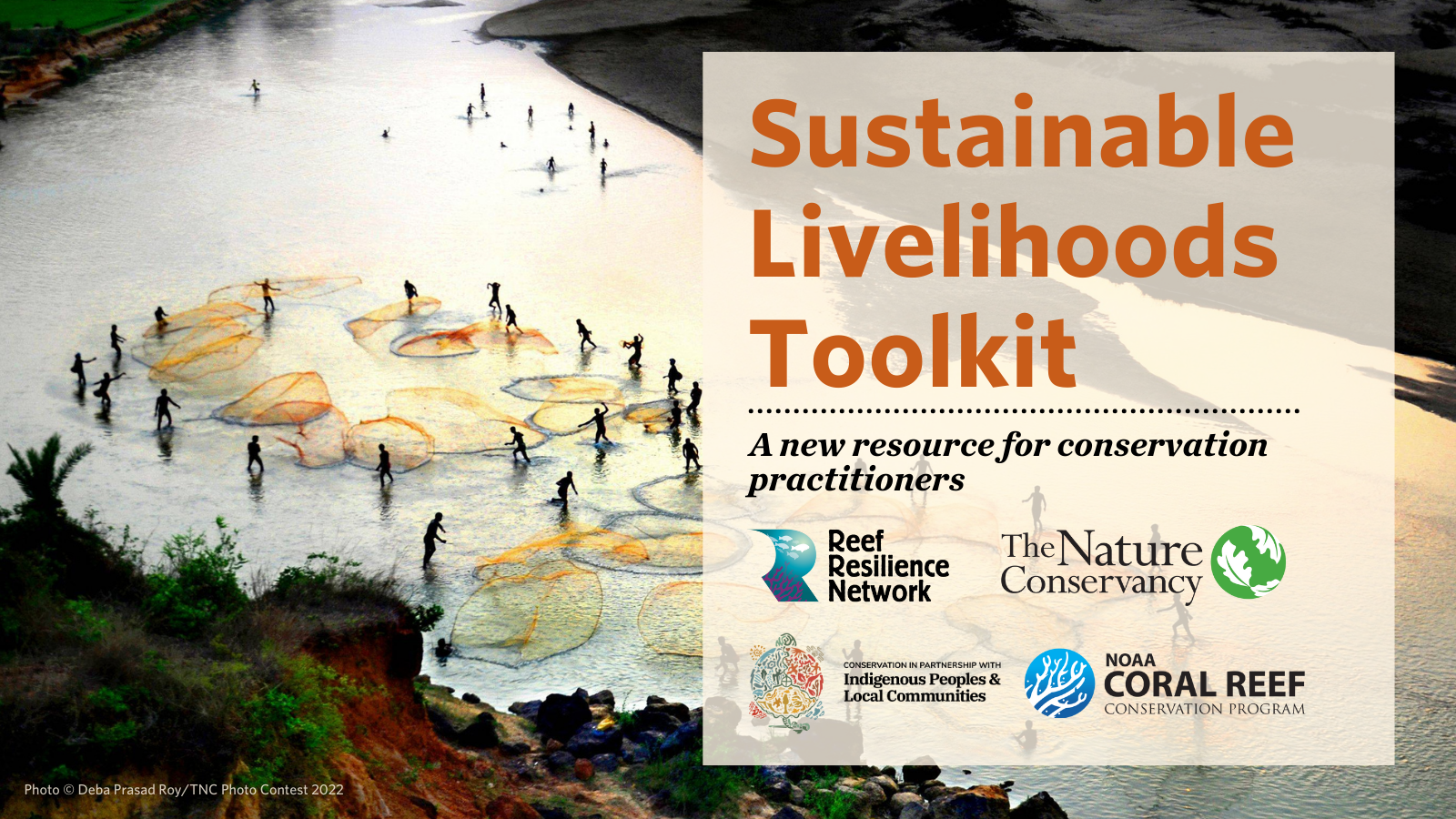This study conducted two experiments over two years to evaluate how herbivore identity and species richness affected the recruitment and primary succession of algal communities and the cascading effects on coral growth. Equal densities and masses of either single-species or mixed-species of herbivorous fishes were enclosed in replicate, 4m2 cages at a depth of 17m on a reef in the Florida Keys, and algal community development and coral growth on new substrates was monitored.
Findings showed that for communities undergoing primary succession (similar to new substrates created following coral death from bleaching, disease, or storm damage), strong species-specific effects of herbivores limit the abundance of late-successional algae and facilitate early successional species such as filamentous algal turfs. Herbivore richness effects were strong on established communities due to complementarity feeding among fish species; this complementary feeding not only impacted seaweeds, but also enhanced coral survivorship and growth. Species-specific effects of herbivorous fishes suggest that a species-rich herbivore fauna can be critical in providing the resilience that reefs need for recovery from common disturbances such as coral bleaching and storm damage.
Author: Burkepile, D. E. and M. E. Hay
Year: 2010
View Full Article
PLoS One (5)1: e8963. doi:10.1371/journal.pone.0008963


